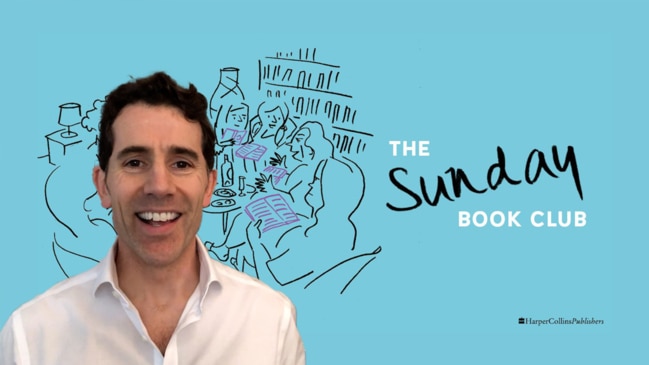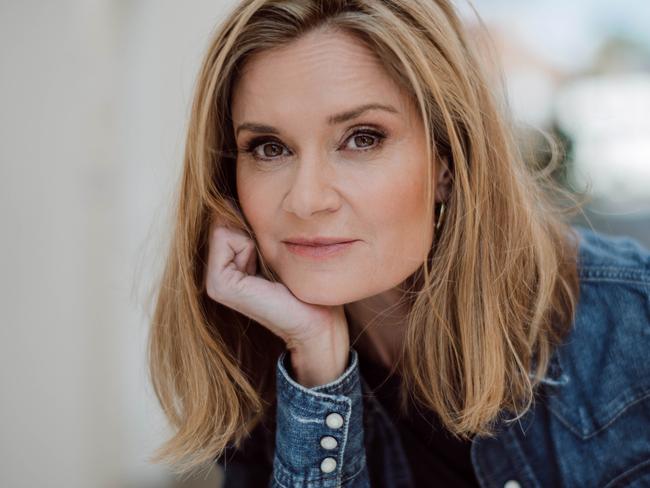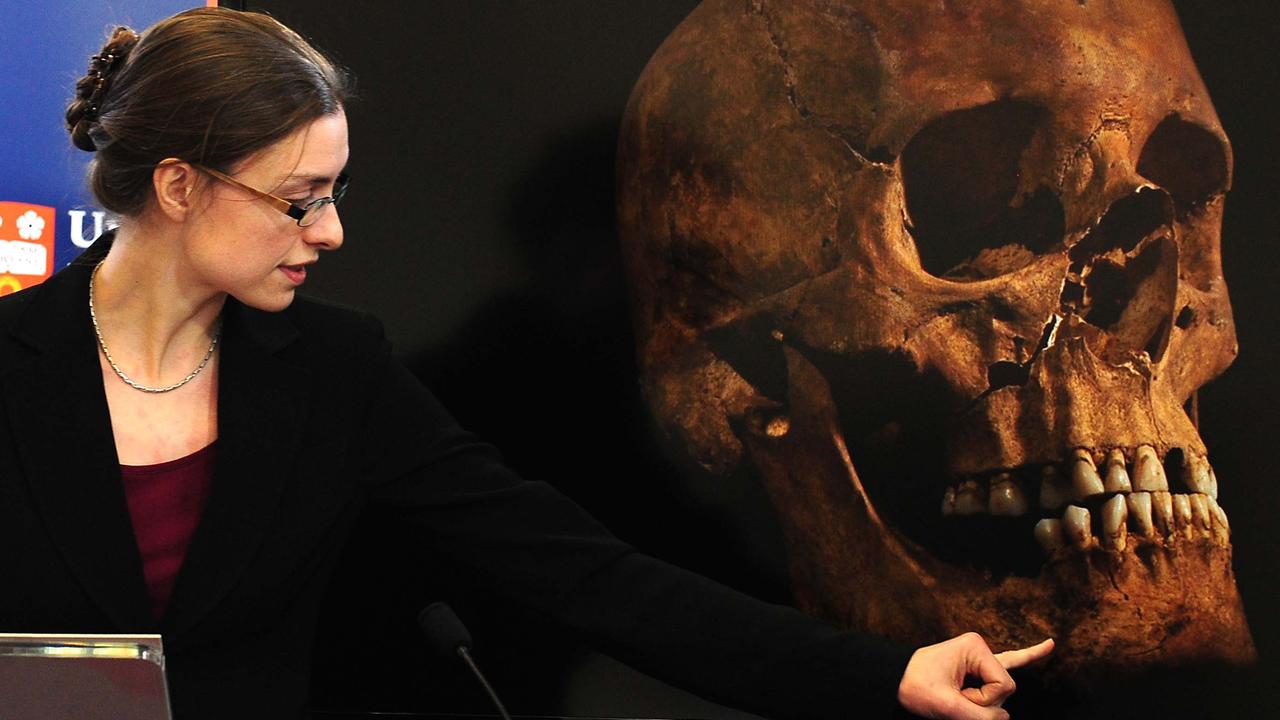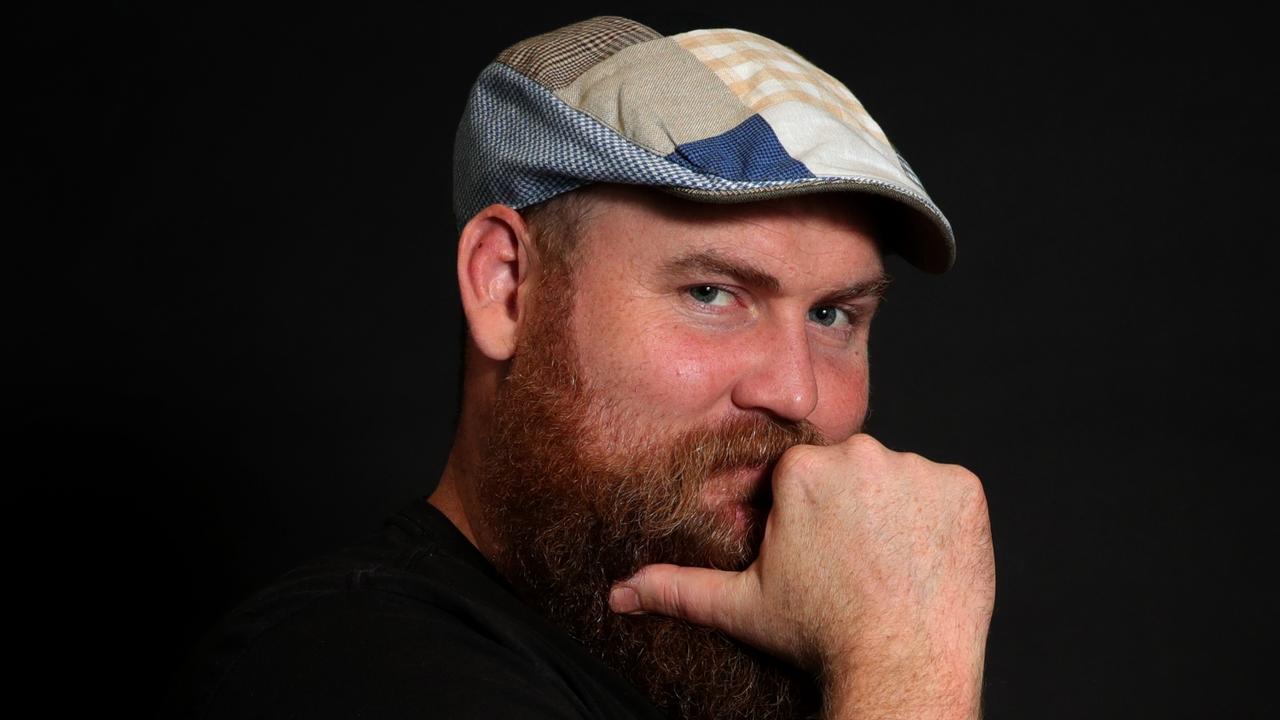Summer reads: Julia Baird’s Bright Shining extract
TV presenter JULIA BAIRD’s new book Bright Shining is all about the power of grace. In this edited extract she reveals how the kindness of strangers saved her from some dark and very dangerous situations.

Books
Don't miss out on the headlines from Books. Followed categories will be added to My News.
TV presenter JULIA BAIRD’s new book Bright Shining is all about the power of grace. In this edited extract she reveals how the kindness of strangers saved her from some dark and very dangerous situations.
I was eighteen when I first travelled to Spain. I was on my own, having left my travelling partner in Florence. After a couple of delicious weeks in Barcelona, I headed to Seville. I had dyed my hair red in Paris, and now decided I needed a haircut. I found a hairdresser who knew a few words of English, I indicated how many inches I wanted cut off, and settled down happily with my book as she snipped away. A few minutes later, she held up my fringe and said something in Spanish. I showed her with my thumb and forefinger how much I wanted trimmed – just a few millimetres.
I then felt the scissors sliding along my scalp and realised too late that that was how long she thought I wanted my fringe to be. I looked ridiculous, but thanked her, paid and walked out, cursing my stupidity.
A day or two later, I got sick. I didn’t know what was wrong, but I hopped on a bus, using the last coins I had, to try to get to a bank (to cash travellers’ cheques – yes, this was how we had to travel in the Palaeolithic age) and then a medical centre, only to realise I was going in the wrong direction. I quickly jumped off in an area unknown to me. By then, I was too weak and nauseous to carry my backpack and I did not know what to do.
How would I even find the money to get to a bank? Looking pretty crusty with my odd scarlet hair, a vintage matador jacket I had found in Madrid, and cut-off shorts, I sat down on top of my bag, near a park, and, like a grown, independent woman, started to cry. Once I started, I could not stop, and I ignored the stares of passers-by.
Then an old woman came up to me, her face riven with lines, hairs sprouting from her chin, and a colourful cap jammed on top of wild grey hair. She paused, looking hard into my face, then leant in and stroked my head, gently, murmuring in Spanish.
I stopped crying and stared back, struck by her bright cornflower-blue eyes. I had no idea what she was saying – it could have been sorrow for the state of my hair, or disdain for my public display of pain – but what it felt like to me, overwhelmingly, was kindness.
I understood she was expressing sympathy and comfort, that she was trying to soothe me. A woman who appeared to have little money of her own had taken the time to stand next to a bawling, red-faced, red-maned teenager from Australia, stroke her hair, and say, It’s okay, I am here, this will pass, it’s okay.
That year, when I was young and clueless, I took a lot of stupid risks and relied a lot on the goodwill of strangers, but I have never forgotten the crinkly eyes of the Spanish woman and how much her simple gesture consoled me.
**

Interactions with strangers can mark us for a lifetime.
Especially as help sometimes comes from the most curious of quarters. For example, twice in my life, completely unexpectedly, a reggae band has saved me from some kind of peril. The first time was in Turkey. I was backpacking with two friends and, as we were leaving to go to Yugoslavia, I was struck by a terrible bout of food poisoning at the Istanbul train station. I needed to lie down, but the hostel we’d just left was now full, as were several others we called at nearby. We were trying to work out what to do as I vomited into a bin on one of the platforms, when a reggae band we had met the day before suddenly materialised.
They stopped, concerned, and called the manager of their hotel, who agreed to give us a room.
The next time was more significant. I was in the middle of a two-month trip to Morocco, with my then-boyfriend, Morgan, hiking, exploring major and driving through the desert. One day we got caught in a sandstorm, during which we could see less than a foot in front of and behind our car. We were already slightly on edge because two hours earlier we had been disturbed by a van full of men who had stopped our vehicle and asked us where we were going. An hour after that, the same men had approached us again aggressively when we paused for fuel, circling us and peering into our car. We refused to answer their questions and drove off along a remote highway heading further into the desert, anxiously glancing behind. Then we’d watched as a wall of whirling sand had swung in rapidly from the hills, turning everything white and swallowing us whole.
With cars behind and in front of us, we were unable to stop, but we slowed down, put the lights on, rolled the windows up and kept the wipers on. After an hour or so of driving at a sloth’s pace, we began to worry we would not find our next place to stay. The map was confusing and the turn-off we had marked wasn’t where it was supposed to be. We took a guess, turned right onto a remote road and drove down it for some time – before the van appeared again, circling us, the men yelling, menacing and threatening us. We kept driving, trying to steer around the van, but then it pulled to a stop in front of us, forcing us to brake.
Suddenly, another van appeared, containing a friendly, grinning reggae band, who swung their back doors open, assessed the situation, shouted at the men to leave us alone and told us to follow them. Somewhat stunned, we drove behind them closely, very closely, until about half an hour later, as the sandstorm finally cleared, a hotel loomed in front of us like an oasis. I almost cried when they told us they had room for us. That night, at dinner, the band played and we danced for hours, giddy with relief, struck by our luck, free.
**
One other time in my life, a stranger I wish I could thank saved me from a potentially very ugly episode. I was in India and had gone to Varanasi, a holy city where Hindu pilgrims go to bathe, to die and to be cremated on pyres by the River Ganges.
At the train station, I met up with a guy – let’s call him Curtis – an American executive I had crossed paths with previously in India and with whom I had made a friendly agreement to travel together. We made our way to a hotel near the ghats – the steps leading down to the river, where the bodies are burnt. That night, when we went to a music concert at the Monkey Temple, I befriended another woman, from Britain.
Chatting away, we went outside the gates of the temple for a quick chai. I had been feeling a little uncomfortable, as Curtis – whom I did not view romantically – had started coming on to me a little strongly and was clearly annoyed that I was talking to someone else. When he found me drinking tea outside, he burnt with anger. He grabbed the back of my chair with white knuckles, face reddening as he told me he was going to make his own way home, that I was on my own. I asked him to wait, said it was late, could we please go together, but he turned and stomped off.
It was midnight, and I barely knew the city. I found a rickshaw driver who would take me as far as he could go, but the centre of Varanasi is a maze of tiny, labyrinthine alleyways no rickshaw can fully traverse, so he dropped me a kilometre or so away from my hotel, near the main ghat. I exhaled slowly, stepped onto the road and headed down to the river, by which I was hoping to navigate back to my hotel. Embers were glowing on the ghats, bodies were still burning, and rangy, hungry dogs were prowling around the pyres.
I inhaled, held my breath and took one step, the next step, one step, the next step, one step, the next step. After about a hundred metres, a group of young men emerged from the shadows, called out to me then surrounded me and began tugging at my dress and pulling on my arms. Terrified, I tried to tug away and keep walking, but they stopped me, one man holding my right arm, another my left, their nails digging into my wrists.
Time paused.
Then, to my left, out of nowhere, appeared a holy man with a shock of white hair, dressed in white and bearing a wooden staff, which he waved in the air as he yelled at the men. They grumbled at him, dropped my arms, then dispersed. The holy man – of the kind known as sadhus – asked me where I was staying, then wordlessly turned and started walking towards the hotel, the thunk, thunk of his staff hitting the ground matching the thumping in my chest. Keeping his head bent, he looked very determined, only occasionally turning to yell at other men who called out from the shadows.
When we got to the hotel, it was shut and the gates were padlocked. He hit the door with his staff repeatedly until someone came to let me in. Once he was certain I was safe, he walked off without a word. I went up to my room and lay on my back on the floor, smoking cigarettes and watching the fan spin on the ceiling, shot with adrenaline, furious with Curtis, and unspeakably grateful to my anonymous rescuer.
Curtis returned to his room next door two hours later, spitting with anger. His rickshaw driver would not take him to the hotel, he said – he had clearly, stupidly, forgotten that it would have been physically impossible for the driver to do so. I stared at him in disbelief as he described berating this poor man, then getting into a fistfight – ‘I could feel his jaw crack as I hit him.’ I was disgusted. It did not occur to him to ask how I had got back to the hotel.
I sat rubbing the scratches on my wrist, waiting for the sun to rise. Then I sneaked down to reception. As I was checking out, the hotel manager told me it was very dangerous down by the ghats at night, and that women often got raped there. She shook her head. ‘We don’t know what to do, or how to stop it, and it’s only getting worse.’
I made my way to the nearest cafe for breakfast (where, happily, I met some funny, warm New Zealanders, with whom I’d subsequently spend a glorious month hiking and rafting through the Himalayas). Over the next few days, I looked everywhere for the holy man but was unable to find him. He hadn’t known me, hadn’t needed me, hadn’t asked for anything. But I owed him so much.
This is an edited extract from Bright Shining, by Julia Baird. It is available now, published by HarperCollins.
Originally published as Summer reads: Julia Baird’s Bright Shining extract


